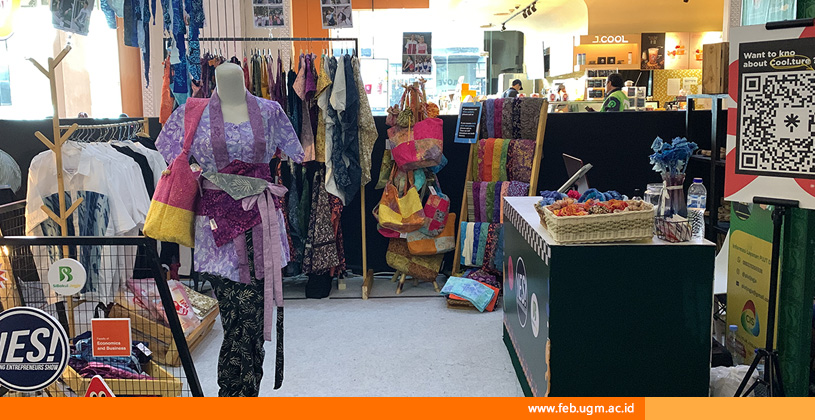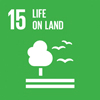Khafi's Story of Running a "Sustainable Fashion" Business by Utilizing Batik Waste
- Details
- Written by Shofi
- Category: News
- Hits: 282

Waste has long been viewed with disdain, often blamed for environmental pollution. However, it is from this seemingly worthless waste that Iman Kahfi Aliza, a student of the Master in Management study program at the Faculty of Economics and Business UGM, class of 84, successfully developed a fashion business rooted in sustainability.
Khafi repurposes batik fabric waste (scraps) into stylish and environmentally friendly items. Through the brand, Cool.ture, she has created a sustainable fashion business by utilizing export-quality batik fabric that did not pass quality control while also empowering housewives to help run the business. Moreover, her brand serves as a platform to educate the younger generation on the importance of sustainability in business development.
Khafi shared that the idea behind Cool.ture emerged during the COVID-19 pandemic in 2020. At that time, public awareness about using eco-friendly products began to grow. In 2022, while participating in a community service program (KKN) in Ternate, Khafi and her team initiated a project focused on the concept of Sustainable Development Goals (SDGs). At that moment, she was a final-year student in the Information Technology program at UGM's Faculty of Engineering.
"I was thinking about what we could bring to Ternate. Then, I remembered a friend who had a business in Solo running an export batik stamping business and had much leftover fabric due to defects like holes, uneven dye, and irregular stamping. I brainstormed ways to repurpose these leftovers by creating traditional Ternate dance costumes as a form of sustainable cultural fusion," she explained.
This idea combined the two cultures by blending traditional Ternate dance costumes with exported batik fabric waste from Solo. This program also collaborated with ISI Bali and tricycle.id to design clothing patterns and find tailors.
After completing her undergraduate studies, Khafi conducted research and designed an eco-friendly business that focused on the phenomenon 'berkain' and wearing batik at concerts. This eventually led to the birth of Cool.ture, a brand name derived from the words "cool" and "culture." Through this name, Khafi wanted to show that Indonesian culture, especially batik, can be fashionable and modern.
Cool.ture also aims to educate young people on the importance of contributing to environmental sustainability through fashion. Each product sold is accompanied by a thank-you card containing a sustainability mission, and social media content encourages consumers to be more aware of environmental issues.
Reporter: Shofi Hawa Anjani
Editor: Kurnia Ekaptiningrum
Sustainable Development Goals





